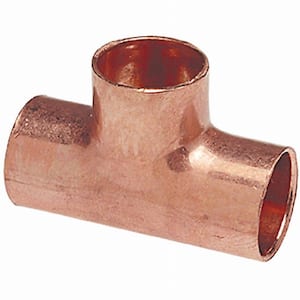Discovering the Diverse Applications of Copper Products in Modern Industries
From boosting the efficiency of electric systems to playing a vital role in sustainable power technologies, the versatility of copper is obvious. As sectors progressively focus on innovation and sustainability, the varied applications of copper require a closer assessment, particularly regarding their prospective impact on future technical advancements and environmental methods.
Electrical Applications of Copper
Copper is a vital product in the electrical market, representing about 60% of the total demand for non-ferrous steels worldwide - Copper Products. Its exceptional electric conductivity, which is virtually two times that of aluminum, makes it the favored option for a vast array of electric applications. From circuitry systems in business and household structures to high-voltage power transmission lines, copper ensures performance and integrity in electrical power shipment
Along with electrical wiring, copper is integral to the production of electric parts such as generators, motors, and transformers. These elements utilize copper's thermal conductivity and malleability, important for heat dissipation and effective efficiency. Copper's resistance to rust enhances the lifespan and durability of electrical systems, making it a cost-efficient option in the long term.
The development of renewable resource resources, such as solar and wind power, has further increased the need for copper in electrical applications. As sectors transition in the direction of lasting energy options, copper's role comes to be much more critical. Generally, the flexibility and efficiency characteristics of copper strengthen its status as a cornerstone material within the electric sector, driving advancement and effectiveness across numerous applications.
Plumbing and Piping Solutions
In contemporary pipes systems, the selection of products considerably influences both functionality and durability. Copper has actually arised as a favored alternative due to its special homes, consisting of rust resistance and antimicrobial features. These attributes guarantee that copper piping continues to be durable and secure for transferring drinkable water, an essential factor to consider in domestic and business applications.
Among the key advantages of copper in plumbing is its capacity to stand up to high temperature levels and stress, making it suitable for a variety of applications, from warm water systems to heating and cooling networks. Furthermore, copper's versatility enables less complicated setup in complex piping formats, decreasing the risk of leaks and failures.
One more noteworthy benefit is copper's long lifespan, usually surpassing 50 years with proper maintenance. This longevity not only lessens replacement costs but additionally adds to sustainable methods by decreasing waste. Furthermore, copper's recyclability straightens with modern-day ecological requirements, promoting a round economic situation within the pipes market.
Copper in Renewable Resource
The flexibility of copper expands beyond pipes applications, playing a crucial duty in the sustainable power industry. In solar panels, copper is used in photovoltaic or pv cells and circuitry, helping with reliable energy conversion and transmission.

Additionally, as the international need for electrical automobiles (EVs) rises, copper's duty in battery systems and billing framework comes to be a lot more substantial. The product's capability to carry out electrical power effectively is important to the efficiency of EV batteries, boosting array and charging speed.
Copper's Role in Electronic devices
Electronics making counts heavily additional hints on copper's outstanding buildings, especially its high electric conductivity and thermal performance. These features make copper a suitable option for a broad range of digital components, consisting of ports, circuit boards, and circuitry. The metal's ability to effectively transfer electrical signals makes certain very little power loss, which is vital in high-performance electronic devices.
Furthermore, copper's thermal conductivity plays a substantial function in heat dissipation, securing sensitive parts from overheating. This is specifically crucial in modern electronic devices, where compact styles lead to raised warmth generation. Copper is also preferred for its malleability and ductility, enabling it to be easily shaped into elaborate styles that satisfy the needs of innovative digital applications.
With the surge of customer electronic devices, telecommunications, and electric cars, the need for copper in the electronic devices sector proceeds to expand. Hence, copper remains a cornerstone material in the ever-expanding field of electronic devices.
Innovative Utilizes in Production

One remarkable application remains in additive manufacturing, where copper-based products are utilized in 3D printing processes. This permits the creation of lightweight parts and complex geometries, specifically in the aerospace and automobile sectors. In addition, copper's thermal conductivity makes it an excellent option for warmth exchangers, enhancing performance in industrial air conditioning systems.
Furthermore, the surge of wise production has seen the incorporation of copper in IoT gadgets, where its conductive capacities sustain innovative sensing innovations. In the world of renewable resource, navigate to these guys copper is pivotal in the production of photovoltaic panels and wind generators, facilitating a lot more reliable energy conversion and distribution.
As sectors strive for sustainability and technology, copper's flexibility and performance remain to place it as an essential material, driving developments in production and adding to the growth of smarter, extra efficient products.
Final Thought
In recap, copper items demonstrate exceptional versatility across various contemporary markets. Copper Products. Their premium conductivity boosts electric applications, while deterioration resistance makes certain reliability in plumbing. The essential function of copper in renewable resource and its important function in electronics underscore its significance beforehand sustainable methods. Furthermore, cutting-edge usages in making emphasize copper's flexibility and sustaining value. Jointly, these applications show copper's vital contribution to technological progress and industrial efficiency in modern society.
From boosting the effectiveness of electrical systems to playing an essential duty in renewable power modern technologies, the flexibility of copper is apparent. As sectors significantly prioritize innovation and sustainability, the diverse applications of copper necessitate a closer assessment, particularly concerning their prospective impact on future ecological practices and technical advancements.
The development of renewable power resources, such as solar and wind power, has better boosted the need for copper in electrical applications. Overall, the adaptability and performance characteristics of copper strengthen its status as a foundation product within the electrical field, driving development and performance throughout various applications.
The adaptability of copper extends beyond pipes applications, playing a crucial right here role in the renewable energy industry.